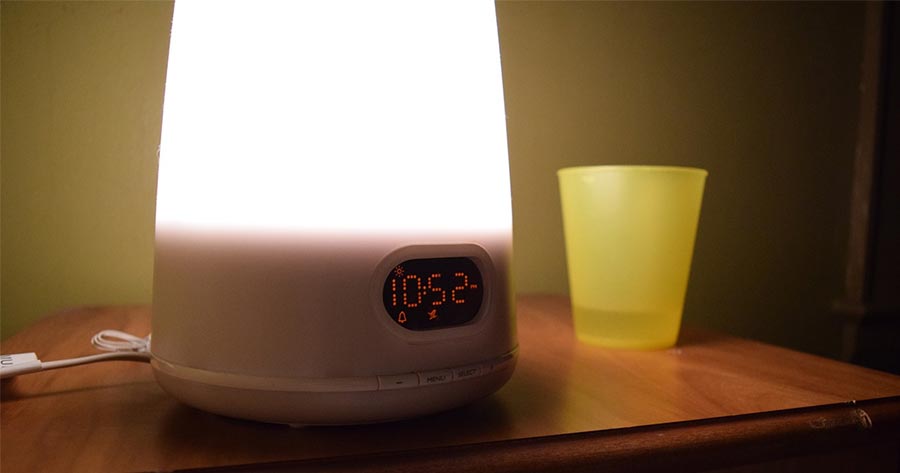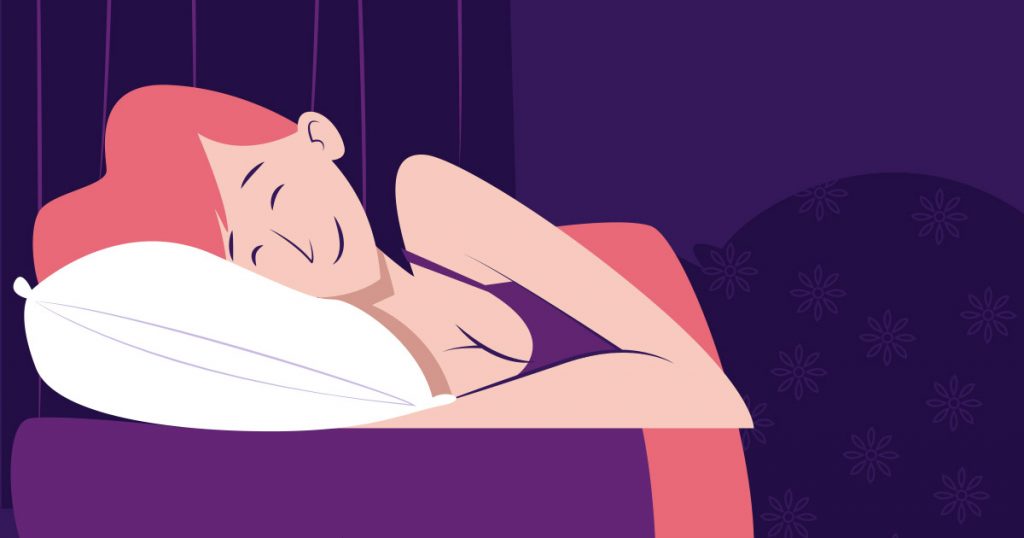There’s nothing worse than the feeling that you’re staring at the ceiling, unable to sleep. Insomnia may quickly feel as though it’s taking over your life, with little you can do about it. Fortunately, you’re not alone and these ten hacks can help you beat insomnia and get a better night’s sleep.

10. Pay Attention to Lighting
During the day, get out in the sun and enjoy it. If you’re stuck in the middle of the winter months and can’t get enough sun on your own, try light box therapy. When you get enough natural light during the day, you help convince your brain that, once it’s dark out, it’s time to settle down and get to sleep. As a result, once you snuggle in and turn off the lights, you’ll find it easier to drift off.

9. Use Your Bed Only for Sleeping
Do you find yourself hanging out in your bed, watching television, reading, and scrolling on your phone? If you’re suffering from insomnia, it’s time to stop! Instead, use your bed for sleeping and sex alone. Over time, you’ll find that you retrain your mind to treat your bed as a place to sleep. Then, when you do get in bed, you’ll find it easier to turn your brain off and get the rest you so desperately need.

8. Watch the Caffeine and Sugar
Caffeine and sugar can both have an incredibly negative effect on your sleep schedule. Chances are, you already know that you shouldn’t drink a cup of coffee within a few hours of bedtime or have a bowl of ice cream right before bed. If you’re struggling with insomnia, however, it may be time to give up the caffeine once and for all (and watch your blood sugar throughout the day to avoid those highs and lows). Caffeine takes 48 hours or more to process out of your system completely, so if you can’t fall asleep even after giving up caffeine after 5:00, consider cutting it out altogether for a few days to see what happens when your body adjusts.

7. Add Magnesium to Your Diet
If you’re struggling to find a better night’s sleep, consider adding in magnesium or looking for foods like almonds, spinach, and tofu, which are high in magnesium. Magnesium helps with the production of GABA, a neurotransmitter critical in getting healthy sleep. When your diet is low in magnesium, you may find yourself struggling with insomnia with what seems like no better explanation. Spread magnesium consumption throughout your day to help your body absorb it more effectively.

6. Break Out the Oils
Aromatherapy has been used as a cure for insomnia for a long time, and with good reason. If you associate a scent with sleep and relaxation, it can make it easier for you to calm down and get the good night’s sleep you so desperately need. Put some lavender in your diffuser or spritz a little on your pillows and see if it helps you drift off.

5. Try a Little Yoga
Doing yoga is a great way to wind down at the end of the evening. You don’t need an exhausting exercise routine, which could keep you awake; instead, find a slow, soothing yoga routine that will help you stretch, settle, and get ready for a good night’s sleep. Even if it doesn’t help the first night, keep with it: as you teach your brain that this is the first step in settling down for the night, you will discover that your yoga routine helps calm you down and get you ready for bed.

4. Create a Better Bedtime Routine
If you’re consistently struggling to fall asleep at night, consider how a better bedtime routine can help you get there. Turn off your electronics and do something soothing. This is the perfect time to have that mug of warm, soothing (caffeine-free) tea or to settle in with a good book. With time, this bedtime routine will help you wind down and increase the odds that when you go to bed, you’ll be able to fall asleep more easily. All too many people try to fall into bed and go to sleep immediately after normal activities, including exercise and games–and that strategy can make it incredibly difficult to settle. A calming bedtime routine, on the other hand, can make sleep easier to come by.

3. Check Your Schedule
Are you constantly falling into bed at different times every night, with a waking schedule that varies based on your plans for the day? Do you spend the weekend trying to “catch up” on the sleep you lost during the week? If your insomnia is increasing,it’s time to stop. A consistent waking and sleeping schedule is often better than any amount of time you can spend in bed on your days off. Aim for around 8 hours of sleep every night, even if that means you miss out on the latest episode of your favorite show. You’ll find the extra sleep is well worth anything you might miss, especially as you start feeling better rested and, therefore, better prepared to face whatever life throws your way.

2. Try Melatonin
Melatonin is a simple, over-the-counter medication that offers a better night’s sleep for many users. Since melatonin isn’t addictive, it’s gentle enough for even children to use. Unlike many traditional sleep aids, it won’t leave you waking drowsy the next morning, so you’ll still be functional enough to handle your normal daily activities. Make sure to follow the package directions on your melatonin for the best results.

1. Know When to Give Up
You’ve been staring at the ceiling for hours, and sleep just won’t come. Instead of lying there cursing your insomnia, becoming increasingly frustrated at your inability to sleep (even babies do it!), know when it’s time to get up. Let yourself get out of bed, keep the lights dim, and enjoy a quiet, soothing activity that will help you settle down. When your eyes start drooping or you’re fairly sure you’re actually feeling sleepy, you can go ahead and head back to bed.
If you’ve struggled for days, weeks, or even months with insomnia, you may start to worry that it will never end. While these strategies are no guarantee, for many people, they’re enough to shift your sleep patterns and make it easier to get the rest you crave.

